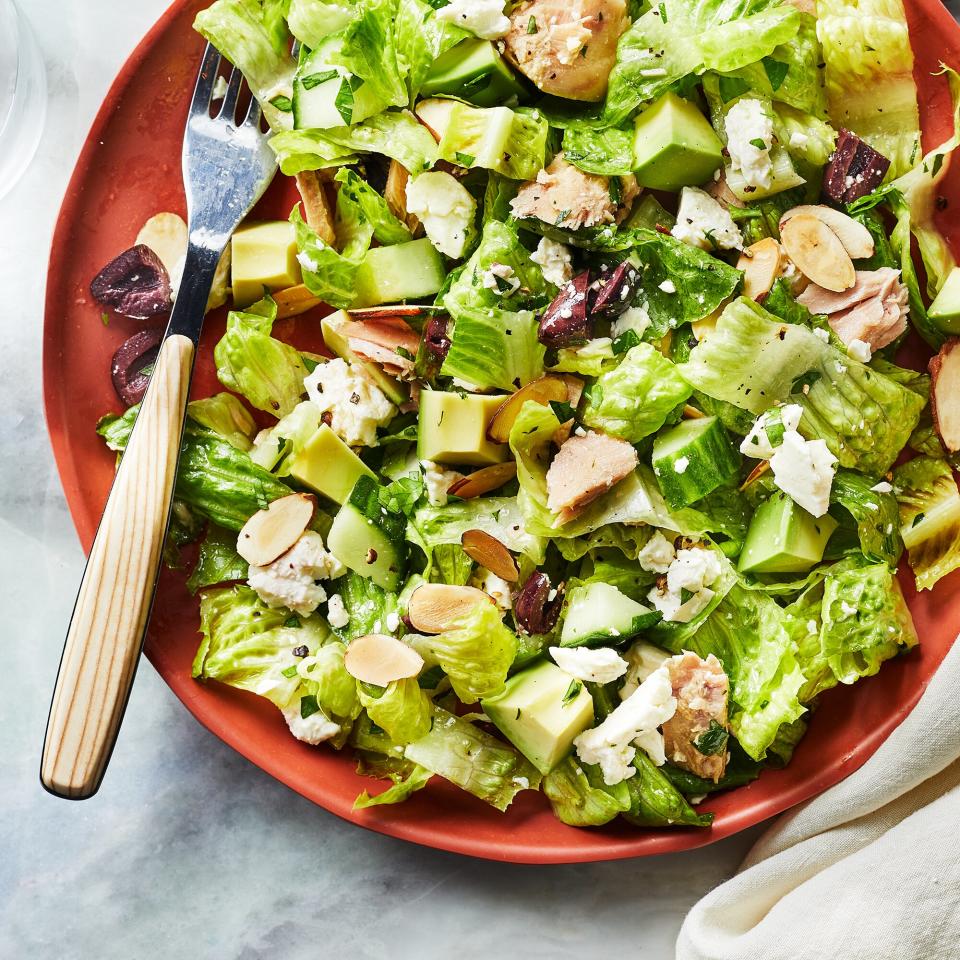The Mayo Clinic Just Launched a New Diet—Here's What You Need to Know
We don't have many diet "rules" here at EatingWell—and we like it that way. We're firm believers that when everything is allowed on the table, and with a little education about the healing powers of whole foods, it's easier to settle into a lifestyle that's more mindful, less restrictive and still well-balanced. (Lookin' at you, 80/20!)
It's safe to say we're not about that detox life or a constant stream of cleanses, and for the most part, we prefer to think of what we eat as just that ... not a specific "diet" per se. That said, there's plenty of research that proves one diet in particular, the Mediterranean diet—which is actually more of a philosophy than a hard-and-fast program—is a boon for your longevity, heart health, blood sugar and beyond. (Here's a sample one-day Mediterranean meal plan if you're curious about what this looks like IRL.)

Photography / Greg DuPree, Styling / Ruth BlackBurn / Julia Bayless
Consistently rated one of the best diets of the year by U.S. News & World Report, the Mediterranean diet is about to have some serious competition in the rankings for 2022. Introducing: The Mayo Clinic Diet.
What Is the Mayo Clinic Diet, Exactly?
Debuting December 1, 2021, the Mayo Clinic Diet was developed by a medical team of weight-loss experts at the Mayo Clinic, a nonprofit academic medical center based in Rochester, Minnesota. You need not make a trip to Mayo to try the diet, though—it's hosted on a digital platform and app that can be accessed anywhere on the planet.
"Unlike any other diet, the New Mayo Clinic Diet is part of the Mayo Clinic's larger mission to inspire hope and promote whole health. It skips the tricks and gimmicks, and instead provides access to the Mayo Clinic's authoritative, unparalleled expertise," a representative tells EatingWell.
During pre-launch trials, those who got app-y with this new program lost three times more weight than their go-it-alone peers and also noted improvements in internal health biometrics.
So what's included as part of the program?
A database of healthy and easy recipes
A food tracker with 1,000,000 foods (although the creators promise no calorie counting is required)
Meal plan options to fit your preferred eating style (including "Healthy Keto," "High-Protein," "Vegetarian," "Gut Health" and "Mediterranean"). Users also receive unlimited access to a private Facebook group, and coming in 2022, live virtual group video chats with Mayo Clinic docs.
Similar to other new-ish diets like Noom and WW Personal Points, there's a focus on the mental health game as well, not just the physical. The app's psychological quiz aims to assess the "diet mindset," and a tool called the Habit Optimizer is designed to help users trade less-healthy habits for better choices in terms of nutrition, sleep, stress management, exercise and more.
The Bottom Line
While we haven't had a chance to try the app yet ourselves, the program seems sound, expert-backed and holistic. Only a few details gave us pause:
The "Healthy Keto" option, since our on-staff dietitians believe that's kind of a oxymoron.
The quick-start "Lose It Phase" that claims members can lose 6 to 10 pounds in 2 weeks (which is much faster than our recommended 1 to 2 pounds per week).
While they say the focus of their food tracker is not calorie counting, recording everything you eat can lead to an unhealthy relationship with food for some people (especially if calories are still displayed).
We hope that if the psychological quiz uncovers any challenges that could use personal professional help, there might be a way to discover mental health pros near the user.
Otherwise, this doctor-guided diet seems like it offers enough customization and resources to be a strong choice for those craving some support during their health journey. Want to try it out for yourself? You can learn more about the Mayo Clinic Diet here.
Up Next: Inflammation Might Be the Reason You're Not Losing Weight—Here Are 5 Things You Can Do About It

